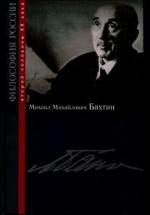|
This section contains 4,692 words (approx. 16 pages at 300 words per page) |

|
Outstanding among scholars who survived the decimation of the Leningrad intelligentsia in the late twenties and thirties is the literary historian, theorist and philosopher, Mikhail Mikhailovich Bakhtin. By the time of his death at the age of eighty in 1975, Bakhtin's reputation as an original thinker in the semiotic-structuralist manner was rapidly growing, both abroad and in his native land. Eulogies from, among others, Julie Kristeva (1970) and the Soviet semiotician Vyacheslav Vsevolodovich Ivanov (1973) spoke of Bakhtin as a man before his time by virtue of his ideas on the notion of text, on the communicative functions of language, and on the binary structures of culture. As a literary scholar his work was already widely known through his studies of Dostoevsky (1929/1972) and Rabelais (1965). The year of his death saw the publication in the Soviet Union of an important collection of papers, for the most part previously unpublished, Questions of Literature...
|
This section contains 4,692 words (approx. 16 pages at 300 words per page) |

|


